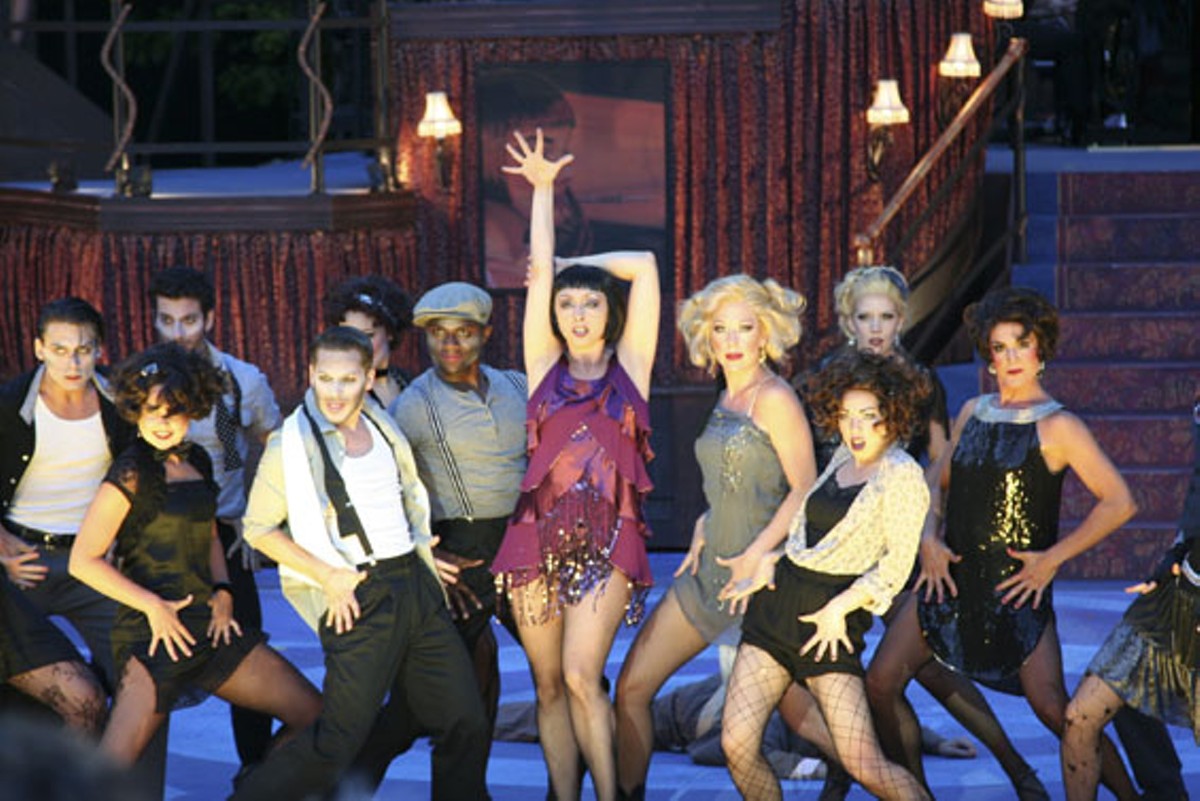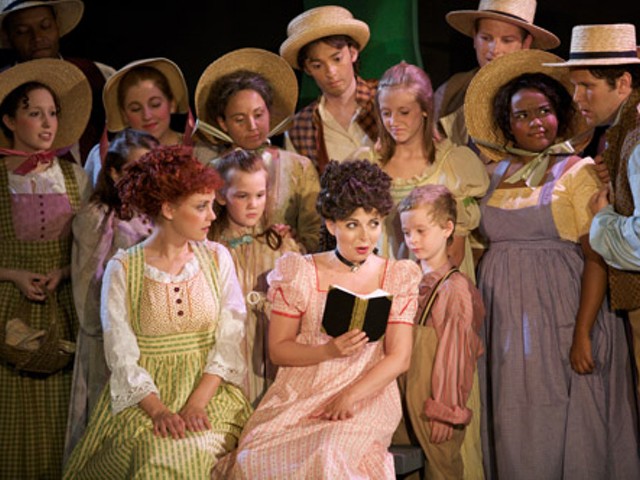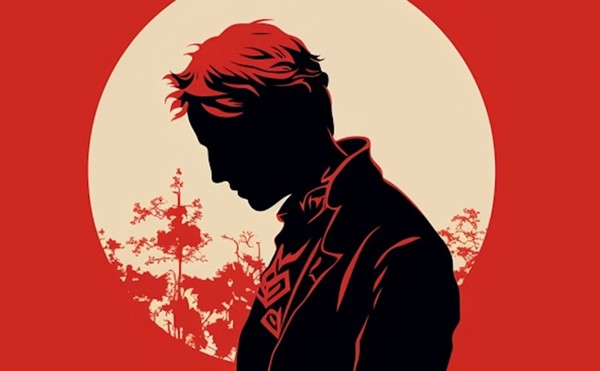It's almost as if this week the Muny is debuting a new musical. Which is rather hard to do, seeing as how John Kander and Fred Ebb's Chicago first played Broadway for more than two years in the 1970s and then even ran for a week in Forest Park in 1977. Chicago was revived in 1996 and is still playing on Broadway a whopping sixteen years later.
But here's the thing. That original Chicago was directed and choreographed by Bob Fosse. The current marathon revival was staged "in the style of Bob Fosse." But when you see the Muny's Chicago, take note that on the playbill's title page, Fosse's name only appears as the co-author of the book (and even that is a dubious credit). Nowhere does the Muny acknowledge Fosse as Chicago's original director-choreographer, not even in "style." And with good cause: Muny director-choreographer Denis Jones has succeeded in liberating Chicago. Jones' brilliantly fluid staging is essentially Fosse-free. Though it would be foolish to suggest that Fosse is not responsible for the evening's arc, there's none of the lifeless, staccato, robotic movement that marks a Fosse fabrication.
Truth to tell, the original Chicago was an oppressively gloomy affair. No surprise that it got swept by A Chorus Line at the 1975 Tony Awards. But as rediscovered here by Jones, this Chicago flows. The themes that composer John Kander and lyricist Fred Ebb intended are still clear, but now they don't hit us over the head with a hammer.
Set in the Windy City in the late 1920s, Chicago remains a freewheeling vaudeville in which the songs and dances comment on the action about two women who become celebrities because they've been charged with murder. Chicago is still a concept musical driven by the metaphor of life as a three-ring circus. The show still comments on the desperate need for fame at any cost and the crass manipulation of public opinion. It still observes that criminals are elevated to the stature of American royalty.
But the Muny production is fun! This Chicago doesn't merely sing about "Razzle Dazzle." It exudes razzle dazzle. The onstage orchestra under the direction of Charlie Alterman wails like a Jazz Age honky-tonk band. (Is that Bix Beiderbecke on first cornet?) Steve Gilliam's razzmatazz unit set, which extends over the empty orchestra pit, fills the Muny stage in a strikingly intimate manner. In an evening fraught with the unexpected, perhaps the happiest surprise of all is that the Kander and Ebb score, which 30 years ago sounded undistinguished, now plays out with the tuneful familiarity of an album of "greatest hits." Over the decades these songs have become old friends.
As naive murderess Roxie Hart, Patti Murin brings something rare to the Muny stage: shameless innocent sex. In her Act One set piece, "Roxie," Murin is eye-popping as she seductively swivels and sways about the stage. (Has anyone ever written musical vamps as nerve-tingling as John Kander's?) Natascia Diaz's brooding Velma Kelly is the dark howl that offsets Roxie's Kewpie doll purr. Put these two disparate killers together, and you get the most alluring combo since Jekyll and Hyde. Justin Guarini's showboating attorney, the incorrigible Billy Flynn, is not so much Fosse-oily as he is Jones-slick. Guarini veritably glides through the proceedings. The entire ensemble serves the piece with deft humor and breakneck agility.
Last week's staging of the innocuous Thoroughly Modern Millie was a triumph of expertise. But it took Chicago, a vintage musical from 1975, to finally move the Muny into the 21st century. And the opening-night audience was wildly appreciative. But one word of warning to future audiences: On Monday night I had the sense that latecomers were being prevented from entering the amphitheater until after Diaz' knockout opening number, "All That Jazz." Don't run the risk of being tardy. You don't want to miss a single joyously cynical minute of Chicago.






